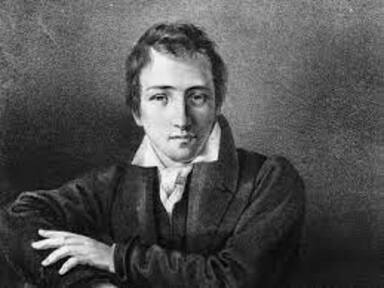Today it’s 110 years ago that my father was born, so it’s time for a bit of Heine. Here’s Alex Ross in The New Yorker earlier this year:
‘In the shouty Valhalla of pointlessly destructive literary feuds, a place of honor must go to the verbal duel between the poets Heinrich Heine and August von Platen, which amused and disgusted the German literary world in 1829. Two outsiders—a Jew and a homosexual—resorted to crude stereotypes as they attempted to eject each other from an establishment that might rather have dispensed with both of them. More remarkably, this intersectional trainwreck took place long before homosexuality emerged as a coherent identity. George Prochnik, in the vibrant new biography “Heinrich Heine: Writing the Revolution,” delivers a rollicking account of the episode, calling it “a game of blind-man’s buff played in explosive suits,” with Heine providing the climactic detonation.’
(…)
‘Platen, irrationally incensed by this run-of-the-mill literary sniping, struck back in a pseudo-Aristophanic comedy titled “The Romantic Oedipus,” deploying anti-Semitic epithets against Heine. The latter, in his next travelogue, “The Baths of Lucca,” unleashed a homophobic evisceration of Platen—which was widely viewed as overkill and caused considerable damage to Heine’s career. Platen, who already felt alienated from Germany and was based in Italy, said no more. He died of cholera six years later, in Syracuse, Sicily.’
(…)
‘Anti-Semitism does not figure strongly in Platen’s writing. Another of his comedies, “The Fatal Fork,” features an appealing Jewish protagonist named Schmuhl, a wise everyman. Max Brod, in his biography of Heine, notes that Schmuhl is given the wonderful line “And the lamps of heaven are extinguished when the last poet dies.” The insults directed against Heine in “The Romantic Oedipus” are stupid but not exactly venomous: “Baptized Heine, pride of the synagogue . . . Pindar of the little tribe of Benjamin.” There is even a gay joke, as the character Nimmermann says of Heine, “He’s my friend, but I don’t want to be his sweetheart; / Because his kisses smell of garlic.” Platen is engaging in a kind of verbal street fighting for which his snobby sensibility is unsuited, and he shows woefully little awareness of the capacities of his opponent—one of the most slashingly funny writers who ever lived, a Paganini of snark.’
(…)
‘Amid the schoolboyish sniggering, it is difficult to accept Heine’s mock-earnest announcement that he has nothing against his rival’s private life. Still, he does mount an interesting argument to the effect that Platen’s poetry suffers from its inability to achieve sexual candor. According to Heine, Platen might have become a real poet if he were living in Roman times, enjoying the uninhibitedness of a writer like Petronius. (Heine cannot resist adding, “And if he were a completely different person than he actually is.”) Instead, hemmed in by social norms, Platen is oblique, repressed, “sober and timorous.” It’s almost as if Heine were judging Platen against the standards of modern gay culture, according to which an artist who remains closeted would be often described as stifled and self-loathing. The obvious problem is that coming out of the closet was not a viable option in 1829, decades before the first glimmerings of a gay-rights movement in Germany. In fact, Platen was as bold as he could possibly have been, testing the limits of what was publishable. He had endured other attacks on his sexuality and had become alienated from German society as a result. Karl Kraus, a later master of the no-holds-barred polemic, castigated Heine for showing no awareness of the “diversity of sexual love.”’
(…)
‘The great German literary critic Hans Mayer, who was both Jewish and gay, has a chapter about the Heine-Platen affair in his book “Outsiders,” which first appeared in German in 1975 and has undeservedly gone out of print in its English translation. Mayer was trained in the post-Marxist tradition and had connections with the Frankfurt School, but in “Outsiders” he focusses on the mechanics of gender, sexuality, and racial identity, which were historically underserved in Marxist thought. In the case of Heine and Platen, Mayer demonstrates how each poet off-loads onto the other the kind of bigoted stereotype under which he himself suffers. Each tries to escape the margin by pushing the other from the center. It is, in the end, a sorrowful spectacle—a “double phenomenon of self-identification of the attacker with what he attacks.” Both men lose, because they are, in the end, fighting themselves.’
Read the article here.
Vanity and overconfidence are beautiful sins.
And there’s a lesson here – which is rare because history doesn’t teach us any lessons – stay away from your opponent’s identity. Act as your opponent doesn’t have an identity. Which is to say, take your opponent as seriously as possible, even if that in reality means that you believe that he consists of nothing but sheer stupidity.
